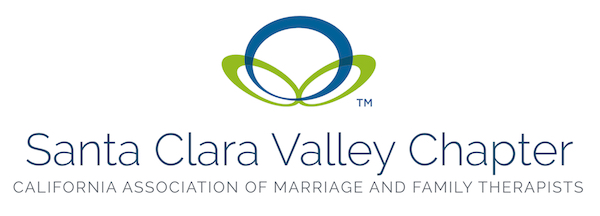Presented by Chay Tanchanco, LMFT
Includes 3 CE credits for LMFTs, LPCCs, LEPs and LCSWs. This event will be in person and live online. A recording will be made available to all registrants for 3 months. For those who can't attend live, CE credit is available by watching the recording and passing a test.
Please join us in-person at beautiful Michael's at Shoreline for a delicious lunch buffet, community connection, and networking! There will be a break for the lunch buffet from 12:00 PM - 12:45 PM.
Presentation Description
The Internet & device technology has become a ubiquitous and fully embedded, and therefore often overlooked, part of everyday life. Many people come into therapy stressed, anxious, depressed, and overwhelmed; technology is often a huge part of this equation and it is constantly evolving. Mental wellness practitioners in all stages of their career need a foundation to address the ever-shifting landscape within which we are working to support our clients healing and wellbeing. The modern therapist needs realistic interventions, empowering and collaborative with clients who depend on technology for the maintenance of their social and work lives.
This course will address the impacts of modern technology, in particular the Internet, personal phone and tablet devices, and social media for mental health providers using neuroscience research discussion and experiential learning strategies from ACT. This course also explains how mental health providers can work from a systems perspective to provide effective assessment, treatment, and psychoeducation for individuals who use mobile device technology in their daily lives.
Program Goals
To demonstrate increased understanding of evidence-based practices regarding the impacts of personal device technology on mental health in regard to screen usage impacts on the brain, emotional cues to prompt tech usage, and building a healthier relationship with technology.
Learning Objectives
At the end of this presentation, participants will be able to:
-
Describe at least 2 trauma-informed cultural considerations for the intersection of digital technology use with racial, ethnic, and gender backgrounds and neurodiverse populations.
- Evaluate the impact of devices on increased levels of stress, anxiety, and/or depression.
- Assess clients’ current relationship with technology and determine specific areas of improvement.
- Describe at least 2 best practices for including mindfulness in interventions addressing tech usage.
- Explain and apply research-backed emotional regulation methods to technology use.
About the Presenter
 Chay Tanchanco, LMFT, is the founder of Reconnected Mental Health and has been practicing as a licensed therapist since 2019. She is passionate about mental health education, especially for the AANHPI and BIPOC community. She was recently appointed to be the new co-lead for the Bay Area Chapter of Therapinay, the Filipinx Directory for Mental Health Practitioners. She has over 10 years of experience in school settings as an educator and school counselor prior to becoming a therapist. Her Masters thesis focused on assisting youth to integrate digital knowledge and ethics, also known as digital citizenship, with emotional and social intelligence. She is an expert on trauma-informed approaches to anxiety, burnout, & social media and technology’s effects on mental health across all ages.
Chay Tanchanco, LMFT, is the founder of Reconnected Mental Health and has been practicing as a licensed therapist since 2019. She is passionate about mental health education, especially for the AANHPI and BIPOC community. She was recently appointed to be the new co-lead for the Bay Area Chapter of Therapinay, the Filipinx Directory for Mental Health Practitioners. She has over 10 years of experience in school settings as an educator and school counselor prior to becoming a therapist. Her Masters thesis focused on assisting youth to integrate digital knowledge and ethics, also known as digital citizenship, with emotional and social intelligence. She is an expert on trauma-informed approaches to anxiety, burnout, & social media and technology’s effects on mental health across all ages.
Workshop Outline
How Devices Impact Brains & Bodies: Stress, Anxiety & Depression (30 minutes) Introduction to Diagnostic Access for Digital Dependence (30 minutes) Application of ACT Techniques (45 min)
Creating Space for True Rest, On and Off-Screen (15 min)
Trauma-Informed Cultural Considerations (25 min) Vignettes / Q&A Discussion (35 min)
This is an introductory level course.
TARGET AUDIENCE: LCSWs, LMFTs, LPCCs, LEPs
If you miss any of the presentation, you will not be eligible for the CEUs. This course meets the qualifications for 3 hours of continuing education credit for LMFTs, LCSWs, LPCCs, and/or LEPs as required by the California Board of Behavioral Sciences. SCV-CAMFT is approved by the California Association of Marriage and Family Therapists to sponsor continuing education for LMFTs, LCSWs, LPCCs, and/or LEPs (CEPA 052466). SCV-CAMFT maintains responsibility for this program/course and its content.
The views expressed in this presentation are those of the speaker and not, necessarily, of SCV-CAMFT. SCV-CAMFT can not be held liable for any damages arising from recommendations or advice given by our speakers or any actions or decisions arising out of the content of this presentation. Presentations at SCV-CAMFT events do not constitute an endorsement of the vendor or speaker's views, products or services.
Event Policy Information
